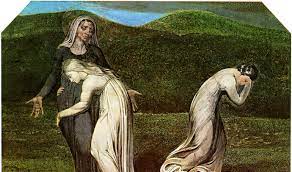Get most out of harlot meaning in hebrew

Unraveling harlot meaning in hebrew the mysteries and depths of words can lead us on fascinating journeys through history, culture, and spirituality. Today, we delve into the intriguing world of the term “harlot” in Hebrew. Join us as we uncover the rich tapestry of meanings behind this enigmatic word and discover how it continues to shape our language and perceptions. Let’s embark on a captivating exploration together!
Understanding the word
To truly grasp the essence of the term “harlot” in Hebrew, we must first peel back its layers and explore its multifaceted meanings. In Hebrew, the word for harlot is “zonah,” which carries connotations of immorality and promiscuity. However, this simplistic translation fails to capture the full complexity of the term.
In ancient times, harlots played diverse roles in society beyond mere sexual relations. They were often associated with fertility rituals, sacred prostitution, and even spiritual practices. This historical context sheds light on a more nuanced understanding of what it means to be a harlot in Hebrew culture.
Understanding the word “harlot” requires us to look beyond stereotypes and judgments, delving into the intricate interplay between language, history, and societal norms. By examining how this term has evolved over time, we can gain deeper insights into its significance within both religious texts and everyday discourse.
The cultural and historical context of the term
When delving into the cultural and historical context of the term “harlot” in Hebrew, it’s essential to understand the nuanced layers that shape its meaning. In ancient times, harlots played complex roles in society, often serving as symbols of both temptation and liberation.
Throughout history, interpretations of this term have varied greatly depending on cultural beliefs and societal norms. From biblical references to literary depictions, the concept of a harlot has been subject to diverse portrayals.
In religious contexts, the term carries spiritual significance related to themes of sin, redemption, and forgiveness. It serves as a reminder of human frailty and the potential for transformation.
In modern language and conversation, using the term “harlot” accurately requires sensitivity to its historical connotations while recognizing evolving perspectives on gender dynamics and sexuality.
By exploring the cultural roots of this term, we gain insight into how language shapes our perceptions and can learn to approach sensitive topics with understanding and respect.
Different interpretations and translations of
The term “harlot” in Hebrew, known as “zonah,” has been subject to various interpretations and translations throughout history. Some see it as simply referring to a woman who engages in illicit sexual activities, while others believe it carries deeper connotations related to societal norms and gender dynamics.
In some contexts, the term has been translated more broadly as “prostitute” or “sex worker,” emphasizing the commercial aspect of such relationships. However, others argue that this oversimplifies the complexity of the term and its implications within different cultural frameworks.
Religious texts often offer divergent views on how to understand and interpret the term “harlot.” While some emphasize moral condemnation and punishment for engaging in harlotry, others suggest a more nuanced perspective that takes into account historical contexts and social inequalities.
Exploring the diverse interpretations and translations of this controversial term can shed light on the evolving attitudes towards sexuality, morality, and power dynamics across different time periods and belief systems.


![[silent war] taming a tsundere](https://newsipedia.com/wp-content/uploads/2024/04/download-20-1.jpeg)

